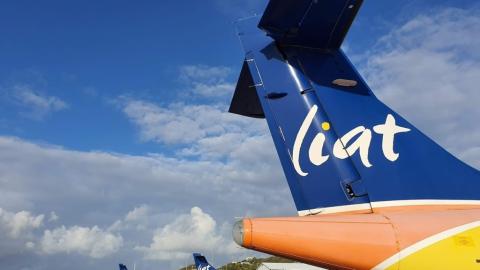
In the heart of the Caribbean, a renewed discussion surrounding the region's air travel has emerged. The continued disruptions faced by inter-Caribbean Airways have cast a spotlight on the challenges of maintaining efficient connectivity in the Caribbean. As we navigate through these tumultuous times, it becomes increasingly evident that the Caribbean's unity and collective efforts must be reinvigorated. Let’s revisits the initial collective argument made for LIAT – the regional airline that symbolized not just a mode of transport, but the unity and aspirations of the Caribbean people.
The recent woes faced by inter-Caribbean Airways underscore the complexities of managing air travel across the Caribbean region. Disruptions due to staffing issues have led to flight delays and cancellations, causing frustration and inconvenience for passengers. The aviation industry's challenges mirror the broader intricacies of the Caribbean's uneven approach to regional cooperation.
While LIAT has not been immune to criticisms in the past, its historical significance cannot be overlooked. As the longest-standing Caribbean airline, LIAT has played an integral role in connecting nations and fostering a sense of regional identity. While some argue for the dissolution of LIAT, it is crucial to remember that the airline has served more than just the Leeward Islands. It has embraced a collective responsibility for interconnecting the Caribbean.
The recent decision by Antigua and Barbuda to establish its own – revised LIAT – airline signals a critical juncture in the Caribbean's aviation landscape. However, this move should not be isolated but should prompt a unified call from all Caribbean nationals for the collective governments to come together and establish an airline that works in the interest of the entire region. The argument remains that the Caribbean requires a unified air travel system, facilitating not only the freedom of movement for Caribbean nationals but also for the seamless movement of incoming visitors from countries outside the region.
The European Union and the United States serve as prime examples of successful integration and cooperation, offering seamless movement for their citizens. As Caribbean nations, it is time we take a page from their playbook. A collective currency and freedom of movement within the region can only be fully realized when we prioritize our shared goals above individual island interests.
The challenges faced by smaller economies and nations within the Caribbean are real, but they should not hinder our collective progress. Just as Dominica, Saint Vincent, Grenada, and Guyana continue to be part of the broader CARICOM community, they can contribute to the success of a unified regional airline. LIAT, with a reimagined structure, could provide economic stability to smaller economies while offering convenience and connectivity to travelers.
In a region as diverse and culturally rich as the Caribbean, unity should be the foundation upon which progress is built. Rather than succumbing to divisions, Caribbean nations can come together, supporting the establishment of a unified regional airline that serves as a symbol of shared aspirations, economic growth, and regional pride. By doing so, the Caribbean can soar to new heights, propelled by the power of unity.



